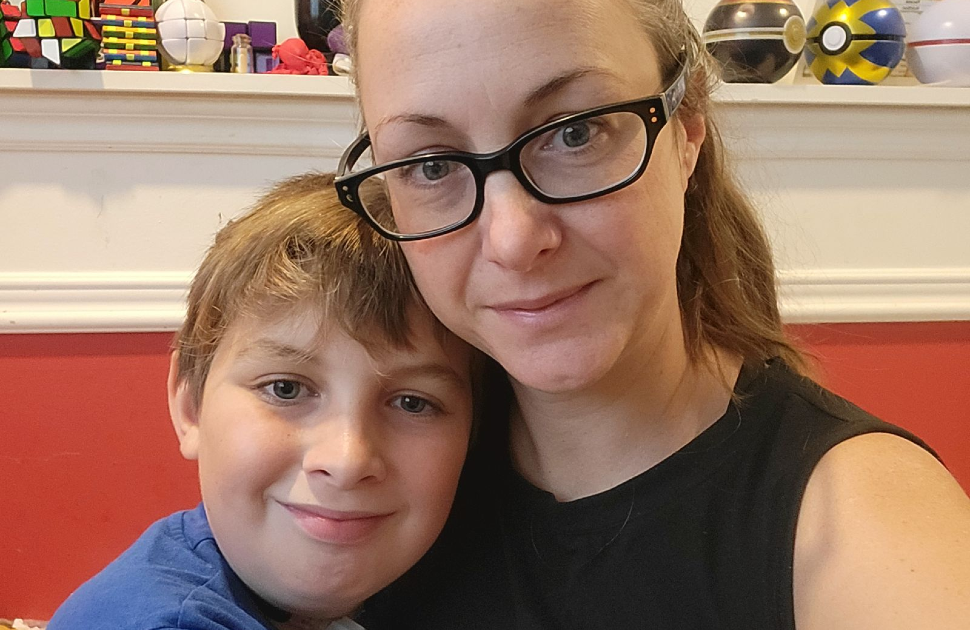For Wyatt Scott, September brings more than just the usual back-to-school jitters.
At 11 years old, he grapples with unique physical and emotional hurdles stemming from brainstem dysgenesis, a rare genetic condition that impacts his central nervous system. This condition demands full-time care, particularly during meals, as Wyatt struggles with motor coordination and requires supervision to eat safely.
That means, unlike most kids, he requires a lot of in-school support, including a nurse, physiotherapy and his educational assistant (EA), Susan.
“She’s like an angel that walks on this earth,” said his mom, Amy Miville.
“It's a person that Wyatt counts on. It's someone that he can lean on emotionally, which he needs.”
In recent years, Wyatt has had to manage with less in-class support and Miville said there’s a big impact on her son.
That’s when CHEO’s Home and Community Care program steps in to support families and advocate on their behalf, ensuring they access the necessary support so children and youth with complex health challenges can continue with in-class learning.
CHEO is the only hospital in Ontario that has accountability for home and school care, and their goal is to continue to transform that care and improve how it’s delivered.
The program also continues to provide more school health services and nursing hours each year.
CHEO has successfully helped families get children to class each year since the Ontario Ministry of Health transferred responsibility for the delivery of this care in 2021 — an initiative of the Kids Come First Health Team.
“If we don't [provide support], they usually don't attend school, or there's a huge burden on families to support the child in school, which is obviously a big challenge for them,” said Valerie Holmes, director of Home and Community Care at CHEO.
The program has helped about 200 children in CHEO’s catchment area this September — up about 25 per cent from last year — who need support in school, typically nursing.
Miville, who’s also a member of CHEO’s Complex Care Family Advisory Council, called CHEO staff her “net.”
“I know that if I forget anything, they're going to pick up what I dropped, or anything that falls through the cracks.”
Wyatt has an Individualized Education Plan (IEP) that lays out what he needs to support him at school to not just get by but succeed.
Recently, CHEO encouraged Miville to get Wyatt more physiotherapy, even if she had to pay out of pocket for services outside of school.
“His peers can run laps around him. He cannot run to this day. He's still struggling up and down stairs. He cannot jump correctly,” Miville said of Wyatt’s physical challenges.
CHEO also pushed to get Wyatt more EA support, which means more time with Susan.
"He's very, very smart, and I want him to shine brightly at school. I don't want him to feel like every day is a struggle. I want him to feel like every day is going to be a new day,” said Miville.
“He wants to be like everyone else.”
This September was a tough start for Wyatt. He started school late due to an illness, which is common because of his weakened immune system.
After some challenging years brought on by isolation and online school during the COVID-19 pandemic, plus the residual impact on Wyatt’s mental health, Miville hopes Grade 6 will be different.
This will also be his first full year of school without his feeding tube, which was removed last January.
“He went to school with a new perspective. He's just like, I am that much closer to being like my friends,” she said.





